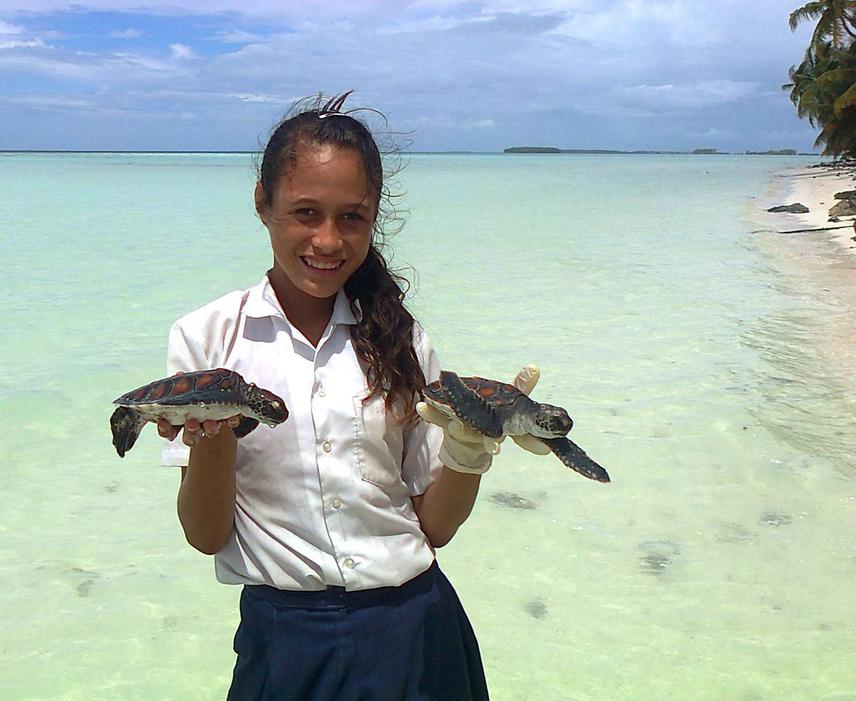Michael White
Other projects
20 Dec 2011
Cook Islands Turtle Project: Assessment of Sea Turtles at Palmerston Atoll, Southern Cook Islands
A community-based project will assess the biodiversity on our atoll, monitor important food resources, and protect and enhance these using traditional management techniques.

We will conduct a biodiversity assessment on Mangarongaro, an uninhabited motu (cay) at Tongareva Atoll, Cook Islands; then implement local protective measures to increase important food species. Tongareva is very remote, with subsistence-based communities: food-security and sustainable use of resources are imperative. The community wishes to develop an environmental project that honours our traditional way of life and cultural needs, but is also based on good science. Customary knowledge and practices will be taught to younger generations, alongside an integrated science curriculum, which will enable us to maintain and pass on a pristine and abundant ecosystem to our descendants.
Objectives include defining and delineating habitats (forest, reef and lagoon); assessing species abundance and diversity; understanding population dynamics, risk, and viability; quantifying threats and impacts; identifying important habitats for migratory and resident species. Important food species will be carefully monitored, and any take will be sustainable. Some research will focus on species demography (life-stages) and reproductive success. We will produce a baseline catalogue of major species and their habitats, and then compare abundance and distribution over time.
Nature provides everything, but must be respected because things take time to reproduce. We control resource-harvesting with Rahui (traditional management): opening or closing a harvest for as long as necessary to ensure its sustainability. Our atoll is also the most important site for green turtles nationally. It is a great honour for us to keep these animals in Sacred trust for our children and their world.
Community education is ongoing and women and children are important members of our project; this will raise environmental awareness in our future generations too. We teach our children to be the future leaders and custodians of our small island Paradise; this is our way of showing respect to our ancestors for the gifts that they passed to us.
Unfortunately the outside world does impact on our island: plastic rubbish arrives by sea and litters our beaches; we collect it, but still it comes. Disposing of the waste is a big problem: our only real choice is to burn it. We will make our concerns known to the industrialised world and ask them to take responsibility for their rubbish. Meitaki Poria e Kia Manuia.